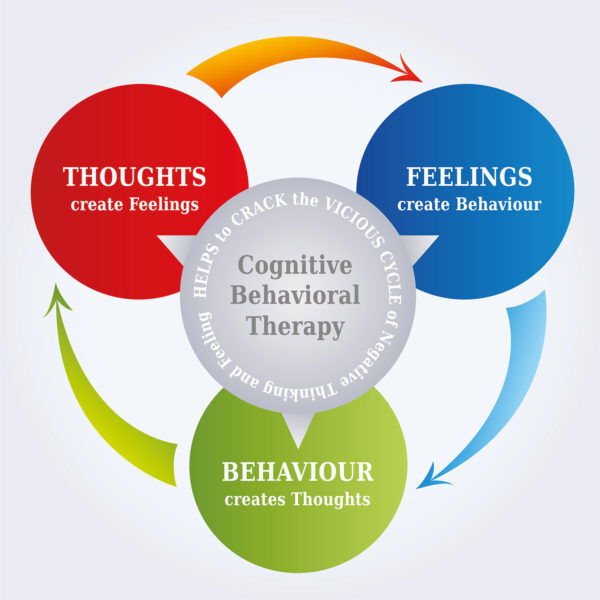Cognitive Behavioural Therapy

Cognitive behavioural therapy (CBT) is a talking therapy that can help you manage your problems by changing the way you think and behave.
It's most commonly used to treat anxiety and depression, but can be useful for other mental and physical health problems.
CBT is based on the concept that your thoughts, feelings, physical sensations and actions are interconnected, and that negative thoughts and feelings can trap you in a negative cycle. CBT aims to help you deal with overwhelming problems in a more positive way by breaking them down into smaller parts. You're supported to identify and then change these negative patterns to improve the way you feel. Unlike some other talking treatments, CBT usually deals with your current problems, rather than focusing on issues from your past, though an exception to this is Trauma Focussed CBT.

According to NICE guidelines CBT has been shown to be an effective way of treating a number of different mental health conditions. In addition to depression or anxiety disorders, CBT can also help people with:
- bipolar disorder
- borderline personality disorder
- eating disorders – such as anorexia and bulimia
- obsessive compulsive disorder (OCD)
- panic disorder
- phobias
- post-traumatic stress disorder (PTSD)
- psychosis
- schizophrenia
- sleep problems – such as insomnia
- problems related to alcohol misuse
CBT is also sometimes used to treat people with long-term health conditions, such as:
CBT as a treatment approach has significantly advanced over recent years. This is often described in the context of "First, Second and Third Wave". The "First Wave" of behavioural therapies were characterised by behaviourism (i.e. operant and classical conditioning). The "Second Wave" of behavioural therapies Cognitive Behavioural Therapy (CBT) and the "Third Wave" cognitive behavioural therapies are a group of emerging approaches to psychotherapy that represent an evolution and extension of traditional cognitive behavioural treatment approaches. Third Wave Therapies are more concerned with health and wellbeing over the reduction or elimination of psychological and emotional symptoms (although that is typically a "side-benefit"). These approaches include: Acceptance and Commitment Therapy (ACT) Acceptance and Commitment Therapy (ACT) (babcp.com); Compassion Focused Therapy (CFT) (Compassionate Mind Foundation); and Metacognitive Therapy Therapy - MCT Institute (mct-institute.co.uk).


